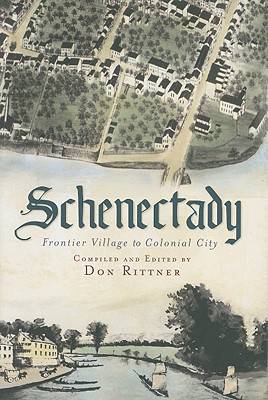Bedankt voor het vertrouwen het afgelopen jaar! Om jou te bedanken bieden we GRATIS verzending (in België) aan op alles gedurende de hele maand januari.
- Afhalen na 1 uur in een winkel met voorraad
- In januari gratis thuislevering in België
- Ruim aanbod met 7 miljoen producten
Bedankt voor het vertrouwen het afgelopen jaar! Om jou te bedanken bieden we GRATIS verzending (in België) aan op alles gedurende de hele maand januari.
- Afhalen na 1 uur in een winkel met voorraad
- In januari gratis thuislevering in België
- Ruim aanbod met 7 miljoen producten
Zoeken
€ 30,95
+ 61 punten
Uitvoering
Omschrijving
Schenectady began as a Dutch settlement and grew into a British and then American metropolis on the banks of the Mohawk River. Characteristically stubborn Dutchman battled over land ownership and clashed with newcomers during the early colonial days. Religious conflict erupted as Methodists struggled to overcome adversity, and Presbyterians and the Dutch Reform struggled to share a new and thriving community. At the same time, important developments took place. Construction of roads and waterways made the city the gateway to the west, and the founding of institutions such as Union College brought refinement to what had once been the rough-edged New World. Originally compiled in 1946 by city historian William B. Efner, this collection of essays by local historians captures the spirit and grit that shaped early Schenectady.
Specificaties
Betrokkenen
- Auteur(s):
- Uitgeverij:
Inhoud
- Aantal bladzijden:
- 160
- Taal:
- Engels
- Reeks:
Eigenschappen
- Productcode (EAN):
- 9781609492298
- Verschijningsdatum:
- 3/01/2011
- Uitvoering:
- Paperback
- Formaat:
- Trade paperback (VS)
- Afmetingen:
- 155 mm x 227 mm
- Gewicht:
- 276 g

Alleen bij Standaard Boekhandel
+ 61 punten op je klantenkaart van Standaard Boekhandel
Beoordelingen
We publiceren alleen reviews die voldoen aan de voorwaarden voor reviews. Bekijk onze voorwaarden voor reviews.






